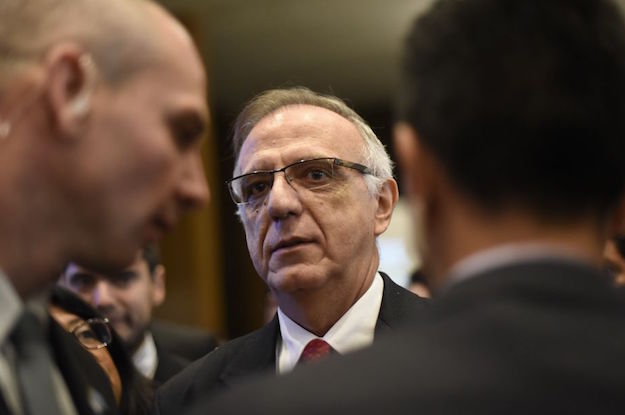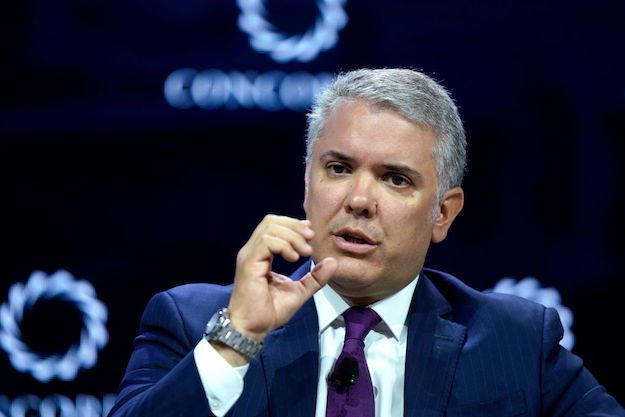Three years ago, Guatemala surprised the world when the Public Ministry (MP) and a U.N.-backed anti-corruption body – the International Commission Against Impunity (CICIG) – uncovered a nationwide graft scheme that reached all the way up to the then-president, Otto Pérez Molina, landing him and a dozen others in prison. It was the biggest splash in anti-corruption efforts dating back a decade, during which time the MP and CICIG have prosecuted over 680 people and identified over 60 organized crime groups. In 2016, newly-elected President Jimmy Morales – a neophyte politician and former comedian – praised CICIG’s work and pledged to support it.
Morales has since changed his tune, not surprising considering CICIG and the MP have accused him and his inner circle of a host of crimes. Most international coverage has focused on his direct actions against CICIG. That includes his most recent attempt to prevent CICIG’s chief, Colombian prosecutor Ivan Velásquez, from reentering the country following a trip to the United States. But his efforts don’t stop there. Here are five other ways Morales and his supporters are undermining its work:
Diplomacy and lobbying
In the past year President Morales has taken his fight against CICIG abroad. He and his foreign affairs minister, Sandra Jovel, have traveled to Washington and New York at least a dozen times to ask the U.N. to limit CICIG’s powers or to ask U.S. officials to limit their support for the commission. Guatemala’s ambassador to the U.N., Jorge Skinner-Klée, recently confirmed there have been five meetings between Morales and the U.N. Secretary General, Antonio Guterres, where Morales has expressed his discomfort with the commission’s work.
Those efforts have been supplemented by lobbyists hired by Morales’ supporters. One of Morales’s main campaign fundraisers and fellow party members, Marvin Klaus Mérida, hired the lobbying firm Barnes & Thornburg in 2017. The Guardian reported the firm receives an $80,000 monthly fee to improve relations between both countries and noted the firm’s staff includes several Republicans who previously worked for U.S. Vice President Mike Pence. Barnes & Thornburg later signed another $80,000-per-month contract with four Guatemalan congressmen, led by Fernando Linares Beltranena. The members are open critics of CICIG and were trying to influence Republicans, Linares Beltranena said publicly.
In April, Sen. Marco Rubio of Florida put a hold on $6 million in U.S. federal funding for CICIG, citing concerns of possible Kremlin infiltration of the body. However, Kenneth H. Merten, a senior State Department official, told a U.S. congressional hearing in July that “our embassy (in Guatemala) and the (State) Department have looked into these allegations of collusion and thus far have found no evidence that that has occurred.” The hold was lifted on August 23.
CICIG retains strong bipartisan support on Capitol Hill spearheaded by Sen. Patrick Leahy, Reps. Eliot Engel and Albio Sires and Guatemalan born Rep. Norma Torres, all Democrats, and Sen. Bob Corker and Rep. Edward Royce, Republicans who chair the Senate Foreign Relations Committee and House Foreign Affairs Committee, respectively. The Commission sent a letter of support for CICIG on September 7.
Consolidating internal allies
In August, Morales announced at a press conference that he would shut down CICIG. But his decision was only part of the shock. The other was the setting: he was flanked by 80 military and police officers. It was an unmistakable gesture with serious implications in a country where hundreds of human rights violations were committed during the civil war in the 1970s and 1980s, and many remain fearful of the army’s power. Guatemalans hadn’t seen anything like it since the military dictatorships that ended in 1985. Furthermore, as Morales spoke to reporters, Army jeeps surrounded CICIG headquarters while other military vehicles patrolled the city streets.
Morales was already tied politically to the military: The party that got him elected was a result of a merger between his own right-wing party and one created by retired conservative veterans. But the show of force invoked fears that the President was about to announce a self-coup or a similar measure that would have worsened a constitutional crisis. He has not backed down: Last week, when a crowd gathered outside of Congress to show its support for CICIG and to protest against changes Congress wants to make to impeachment laws, he sent elite troops known as kaibiles to deter the protests.
Another group of Morales’ allies can be found in a most unexpected place: the Mariscal Zavala prison. Sometimes referred to as a “VIP” prison, it was established inside a military base in late 2015 and holds 240 prisoners, including former presidents Otto Pérez Molina and Álvaro Colom, as well as government ministers, Supreme Court judges, dozens of congressmen and some of the country’s most powerful business leaders – all of them indicted by the MP and CICIG. Despite their imprisonment and the fact that most of their cases are still being litigated in courts, many prisoners remain outspoken critics of CICIG and of the justice system.
Undoing anti-corruption laws
Part of CICIG’s mandate (according to the U.N.-Guatemala treaty that created it) is to help draft and promote legislation to further the fight against corruption. Congress has gone along sometimes – enacting, for example, penal code reforms in 2013. But in 2016, Congress rejected much of a CICIG-supported package of bills to strengthen Guatemalan institutions, including constitutional and electoral reforms and a law to encourage organized crime members to take plea bargains and cooperate with authorities.
However, one law was enacted: electoral reforms, which led to more transparency in campaign financing and increased prison penalties for electoral crimes. But in 2017, after President Morales tried to expel Commissioner Velásquez the first time, two-thirds of the legislature successfully voted to repeal the electoral law reforms, benefitting Morales directly: CICIG and the MP wish to impeach him for not reporting more than $2 million donations to his party.
As a result, Guatemalans did what they’ve done quite often the last couple of years: protest and go on strike. Some people began referring to the politicians who engineered the repeal as the fathers of the pacto de corruptos (corruption pact). Legislators succumbed to the pressure, returning to their chambers and undoing the changes. But in 2018, they’re at it again, attempting to remove key checks and balances in the impeachment process and give themselves untethered control.
Dismantling the police department
The Police department is imperative to CICIG’s work. It provides security for its headquarters and its employees, and police detectives also play an active role in the commission’s investigations. Furthermore, MP and CICIG can’t execute search warrants, raids or arrest suspects without the police being present.
When Morales got into office he appointed Francisco Rivas, a pro-CICIG former prosecutor, as Interior Minister (who oversees the police). Rivas left most of the high-ranking officers in charge on their posts. Rivas resigned after Morales tried to expel Velásquez last year as a sign of protest. In January Morales finally replaced him with Enrique Degenhart, a long-time civil servant and ally of Morales with no relevant experience on the field.
One of Degenhart’s first actions was to fire the police chief and two of his most senior officials. In the following months he fired several other senior officers and detectives, shuffled specialized agents, and promoted less experienced officers. Furthermore, Degenhart removed and relocated more than 40 officers assigned to CICIG, leaving the commission unprotected and without manpower for investigations.
The changes have prompted public outcry from some current police officers, security experts and members of civil society. In June, a group of officers protested the changes and were quickly fired or demoted, while officers were banned from speaking to the press or from filing complaints. A few weeks ago, Degenhart stopped cooperating with MP and CICIG altogether, effectively preventing prosecutors from executing search warrants or arrest suspects, something that had never happened in CICIG’s 10 years in the country.
In late August, the Constitutional Court – the highest-ranking court in the country – ordered Morales to explain why he appointed Degenhart as Minister, given his lack of expertise and experience. In a sharp break with customary practice, Morales disobeyed the court, refusing to give any explanation, arguing that the court couldn’t ask him to justify his appointments, and edging the country closer to a constitutional crisis.
Disobeying the Constitutional Court
That has not been the only instance in which Morales has disobeyed the Constitutional Court. Last Sunday, the five magistrates who oversee this court issued a unanimous ruling in which they ordered the government to let CICIG’s commissioner back into the country. In another unprecedented decision, the Foreign Affairs Minister Sandra Jovel and Interior Minister Degenhart announced they would not respect the ruling and that Velásquez was still not allowed into the country. Jovel gave the U.N. 48 hours to send three candidates to substitute Velásquez so that the Guatemalan government can veto them. The government is no longer recognizing Velásquez as Commissioner.
—
Enriquez is a journalist based in New York and an editorial intern for AQ








